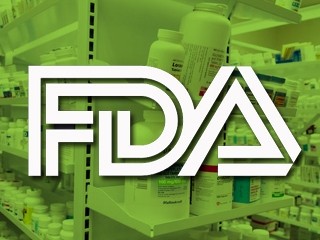Noncompliant use of testimonials remains durable feature of supplements business

For instance, there was this testimonial from the website of M.D.R. Fitness Corp. quoted in a Food and Drug Administration warning letter sent to the company on Jan. 29, 2013: “I use other MDR products and have had great results for years but I have always needed high blood pressure meds. Within just a few days of taking this new Artery health formula [Artery Factors], I felt better and found my blood pressure stayed lower and in a normal range. Even my Doctor is amazed.”
It’s a clear disease treatment claim, and discerning that doesn’t seem as if it should be that difficult. The confusion seems to come in when companies misunderstand (or perhaps willfully ignore) who is saying what and who is responsible for the content of that communication.
“I do see that. I think there is somewhat understandable free speech, First Amendment reaction among marketers when there is some disbelief that they can’t reprint an actual customer’s actual communication to the company,” Ivan Wasserman, an attorney with the law firm Manatt, Phelps & Phillips told NutraIngredients-USA.
“They think this is what that person believes. They think that it is clear that is not the company that is saying it, but rather that it is this individual that has no connection to the company saying it. How can they be held responsible?
“What they don’t realize is that both the FDA and FTC take the positions that advertisers cannot make claims in testimonials that they cannot make directly,” Wasserman said.
Their claims are your claims
In other words, the regulatory bodies have taken the position that if a company reprints testimonials, it is adopting those messages as its own. If Joe Sixpack says product X cured his cancer, the company is making that claim if it uses the testimonials in its marketing or on its website. And packaging all of these clams under a “testimonials” tab doesn’t really help prevent this violation. While a marketer might think it’s clear that a testimonial represents an individual’s experience and is not a claim of product performance on the company’s part, the regulators disagree. Strongly, as it turns out.
“I do think (testimonials are) one of the most misused tools,” said Justin Prochnow, a principal in the law firm Greenberg Traurig. “From the FDA perspective they look at it that if you use a testimonial in your advertising you have adopted that claim.”
“It is one of the areas where the FDA and FTC take a lot of action,” he said.
Testimonials elsewhere
Testimonials used in venues other than a company’s website fall into something of a gray area, said Wasserman and Prochnow. First, there is the oft-mentioned but never officially acknowledged “two click rule.” This assumes that a company is responsible for information that appears on a website to which it links off its own website. So pushing testimonials to this subsidiary platform is no protection.
Also, noncompliant testimonials used in materials such as press releases or hard copy materials distributed at sites like trade shows might not be a direct violation, but could by looked at by regulators to form an overall impression of what a company’s marketing intent is. Prochnow said if the bulk of the material that a company distributes is noncompliant, it might still form the basis of a regulatory action even if the company’s website is narrowly compliant.
“You are still stuck with general proposition that FDA can look at anything out there in your attempt to disseminate a product,” he said.
Using testimonials well
So how to use testimonials properly? First off, it’s clear that any connection between the author of the testimonial and the company must be disclosed. From a practical standpoint, that means your father-in-law’s testimonial probably won’t be of much use.
Second, it’s imperative that whatever effects are claimed for the product in a testimonial is something that the company can back up with some sort of clinical data. If a customer obtained a result with a product that a company hasn’t investigated fully, bully for the consumer. But it would be a potentially dangerous testimonial for a company to use from a regulatory standpoint.
Third, it is no longer acceptable to put up the “I lost 50 pounds” testimonial and then include a small-print “results may vary” or “results not typical” disclaimer. You can still feature the 50-pound figure, but if most people lost 5 pounds using your product in a given timeframe, you have to say that, too.
And last but certainly not least, the testimonials themselves must be compliant with the disease claim strictures set forth in DSHEA. This means a company will have to pick and choose pretty carefully, as many enthusiastic consumers can be expected to naturally step over this line in what they want to say about a product.
Still, the pull of testimonials is strong, and if a company is eager to use them, it might be wise to get the advice of counsel to make sure it’s done properly.
“They can be very effective marketing tools, which is why people want to use them. They can humanize the product,” Wasserman said.














